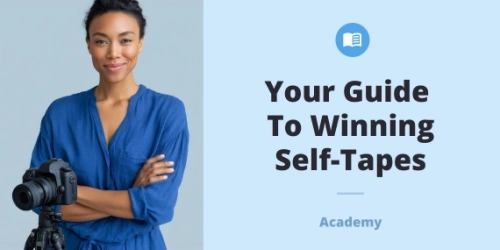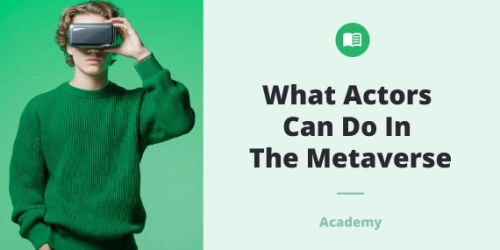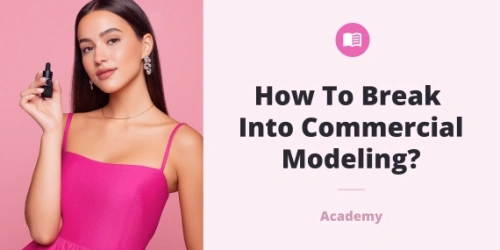In this interview, we explore how Nichela Knox, Director, Actress, and CEO of GoGetHer Productions, casts for her upcoming projects, as well as share some tips on what aspiring actors need to do to increase their chances of an audition.
How did you get into the industry? What's the backstory here?
Ever since I can remember, I have always been interested in Theatre/Film, and throughout my life, it continues to progress. I took acting classes all throughout middle and high school and participated in church plays. When I went to college, I went with hopes of obtaining my BFA in acting. However, I was not accepted into the acting program, and that's when I discovered my passion for film and directing. I switched my major to film and began to network with the local actors and directors in Greensboro. From there, I found my place in the indie film community and eventually went on to head a production company, and now operate my own business and continue to work and network on a professional level.
Which casting calls or roles were the biggest challenges for you and why?
When I was acting, one of the most challenging roles I ever played was actually for a short film called "Teddy Bear Picnic". What made it so challenging was that I was in the scenes by myself most of the time, so I really had to play off my own emotions. Plus, the majority of the film was shot outside in the woods in the middle of spring. I AM NOT an outside person, so I was miserable (lol), but I couldn't show that.
What do you like more - acting or directing?
While acting is and will always be my first love, I enjoy directing more. When I discovered directing, I realized that I could contribute so much more to a project than just being in it. Directing gives me the ability to control everything, and with that type of control, I can create a beautiful project. It fills my spirit more than acting ever did.
How do you spend your free time?
In my free time, I enjoy cooking, working out, playing with my dog, and going out to restaurants with friends and family. And of course, I absolutely love checking out a new film or series.
If you had to choose an actor to play you in a biopic, who would you choose?
If I had to choose an actor to play me, I would, without a doubt, pick Tessa Thompson. I think she is a phenomenal actress, and her personality seems to be very laid back, and that's exactly how I am.
What’s your most exciting project right now?
The most exciting project for me right now is my project titled "Coma Couch''. I can't say too much about it, but it is my first feature film under my production company. I serve as the writer, director, producer, DP, and Casting Director. If you'd like to follow the making of the film, please follow us on Instagram @Comacouchmovie.
What’s the most memorable audition that you’ve been a part of?
The most memorable audition that I've been a part of was when I first auditioned for the BFA program at UNCG. That is the most preparation I've ever done for an audition, and I learned a very valuable lesson when I didn't get in. I learned that while you should always be prepared, sometimes you don't book acting jobs because you simply don't fit the look or the type, and that has nothing to do with preparation.
What are the typical mistakes actors make in the casting process?
There are lots of mistakes that inexperienced actors make. The most common one, in my opinion, is that some actors simply do not follow directions. Casting Directors, including myself, can be very specific with instructions; when an actor doesn't follow that instruction, it shows that they also may not be able to take direction on set, which lowers their chances of being selected.
How can they improve their chances of getting cast?
To improve your chances of being cast, there's actually a very simple formula.
- Make sure you are reading everything and following the instructions. Make sure your materials are correct, meaning you need good industry-standard headshots, not a selfie, not a picture from years ago, and not just a professional picture but actual industry-standard acting headshots that show what type it is. Make sure when you do your self-tape that your setup is professional and has a good reader. If you really want to perfect your self-tape, I highly suggest looking into self-tape coaching. That is also a service that I offer.
What should aspiring talent know before they apply to your casting calls?
Before applying to my casting calls, please note that following directions is very important to me. If you do not follow the directions, I do not view the submission.
What would you suggest to other people who are seeking talent?
To other people seeking talent, please remember to have patience. You may not find your star on the first day, and that's okay. A mistake a lot of people make is only searching for talent in one place. You have to utilize all of your resources and take advantage of social media to really find talent, especially on an independent level.
What do you think any casting professional needs in order to succeed?
Any casting professional needs to have an open mind when it comes to casting. When you view hundreds of auditions every day, it can be easy to stop really "seeing" people. Sometimes you have to take a break and come back to it so you can make sure you are giving everyone a fair chance. Also, being organized is a huge tool, and knowing how to really categorize talent.
How do you notice the difference between aspiring talent who can “make it” and those who can't?
The difference between the aspiring talent that can make it and those who can't is simple. Those that can make it continuously audition, and after every NO, try to improve themselves as an actor, and they are always educating themselves on this business. Even if they can't get the proper materials (Industry standard headshots, reels, etc.), they work towards that goal. Those who can't make it continuously make careless mistakes and never try to improve or educate themselves on this business and usually have an ego problem. They simply continue to submit bad tapes, headshots, etc. And usually end up quitting because they have no success or they never get a speaking role and become content in background roles.



